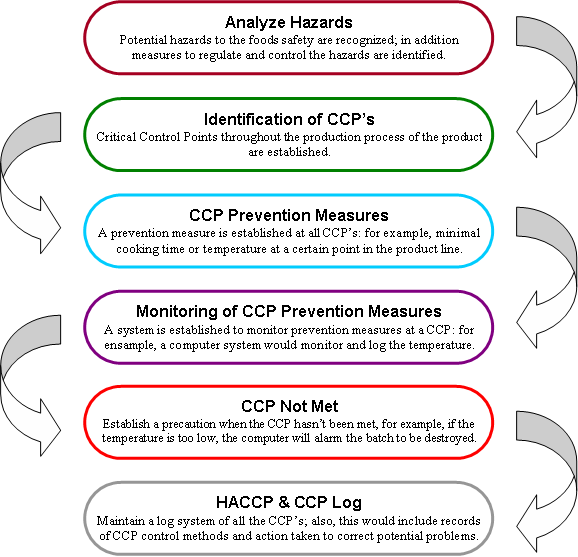Talk:Hazard Analysis Critical Control Point
Hazard Analysis and Critical Control Points (HACCP) is a systematic preventative approach to food safety that addresses physical, chemical and biological hazards as a means of prevention rather than finished product inspection. HACCP is used in the food industry to identify potential food safety hazards, so that key actions, known as Critical Control Points (CCP's) can be taken to reduce or eliminate the risk of the hazards being realised. The system is used at all stages of food production and preparation processes. Today HACCP is being applied to industries other than food, such as cosmetics and pharmaceuticals.
HACCP is based around seven established principles. The flow diagram below is representative of HACCP for the food industry and this HACCP program can be adapted for other industries as well.
- [View source↑]
- [History↑]
